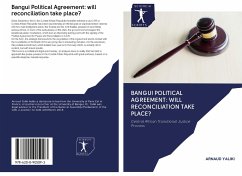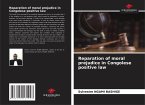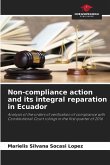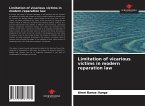Since December 2012, the Central African Republic (hereafter referred to as CAR or Central African Republic) has been experiencing an infernal cycle of unprecedented violence with two main belligerent actors: the Seleka and the Anti-Balaka, accused of committing serious crimes. In view of the seriousness of this crisis, the government envisaged the transitional justice mechanism, which took an interesting turning point with the signing of the Political Agreement for Peace and Reconciliation in CAR.On the form, the strategic framework for the negotiation of this Agreement and its contact with the Constitution of 30 March 2016 are giving rise to interesting debates. On the substance, this political commitment, which totalled one year on 6 February 2020, is certainly rich in content, but with mixed results.This book is a political and legal commentary, an analysis close to reality that has tried to approach the peace process in the Central African Republic with great coldness, basedon a scientific discipline: transitional justice.








